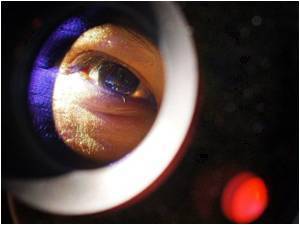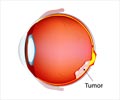Molecular medicine is beginning to provide hope for patients with eye problems, says Dr. Richer.

A recent case, says Dr. Richer, is an 88-year old woman with macular degeneration, an age-related eye disorder that robs seniors of their central vision. Employing a molecular medicine regimen, this hospitalized woman regained her ability to see faces, read a menu and visualize her handwriting in just four days. Her vision improvement was in both eyes says Dr. Richer. "A second 88-year old patient, this time with "dry" macular degeneration, took 10 weeks to see clinical improvement, but by 20 weeks the retina appeared to return to a more youthful appearance with 20/20 vision."
Dr. Richer says, typically in the cases he has monitored, blind spots (called scotomas) disappear, time to recover from bright light (glare recovery test) is reduced, and contrast vision (shades of grey) as well as visual acuity (ability to see letters on a chart) generally improve within 3-6 weeks on a molecular medicine regimen that provides small molecules that bind to (chelate) to minerals such as copper, iron and calcium.
In recent months a growing body of scientific studies point to the age-related over-accumulation of these minerals as an underlying cause of eye problems in the aged.
Dr. Richer selected a nutriceutical mixture of vitamins and small molecules (Longevinex) extracted from herbs and vitamins to produce these rapid improvements in functional vision because of its extensive testing and proven ability to favorably alter genes in a superior manner to other available nutriceuticals.
He says the human eye apparently has untapped regenerative capacity that can be activated with molecules found in nature. There is a growing body of science which points to regeneration of tissue via the use of molecular medicine to promote the survival of endogenously-produced stem cells. Dr. Richer believes this is what is actually happening in these cases, "and if scientifically proven, this approach has obvious advantages when used alone or in conjunction with injected stem cells or organ transplants", he emphasizes.
Advertisement
Source-Eurekalert













